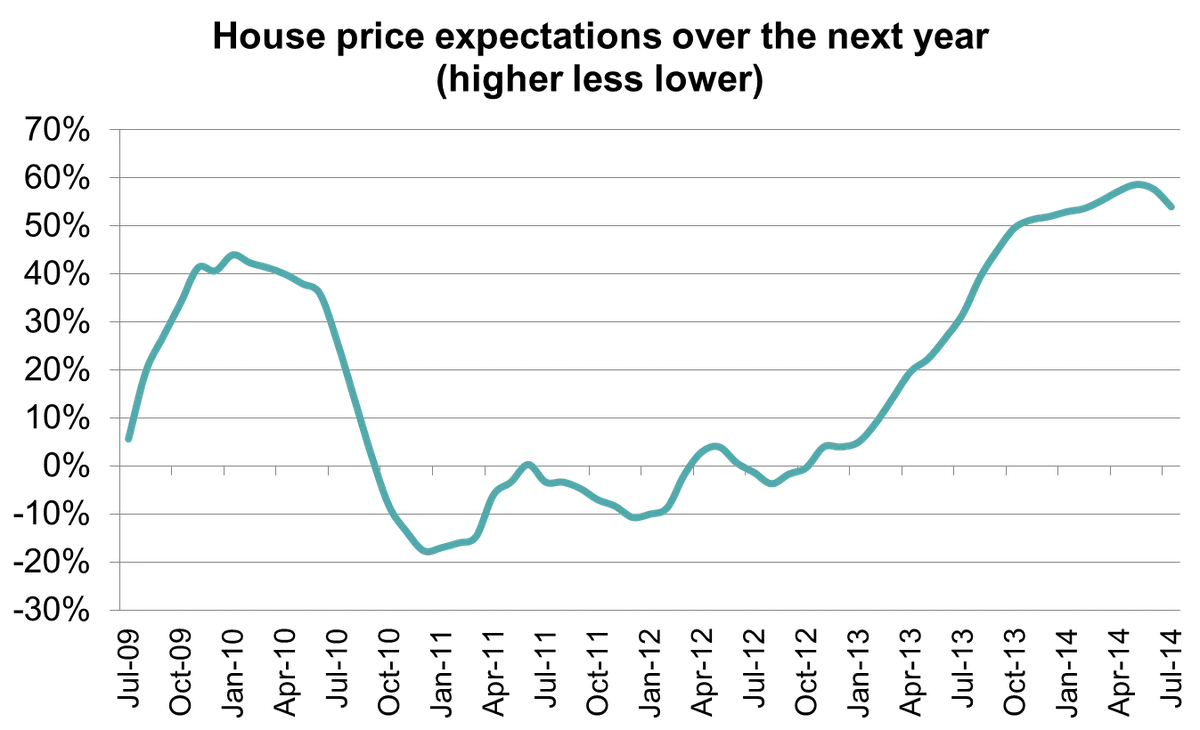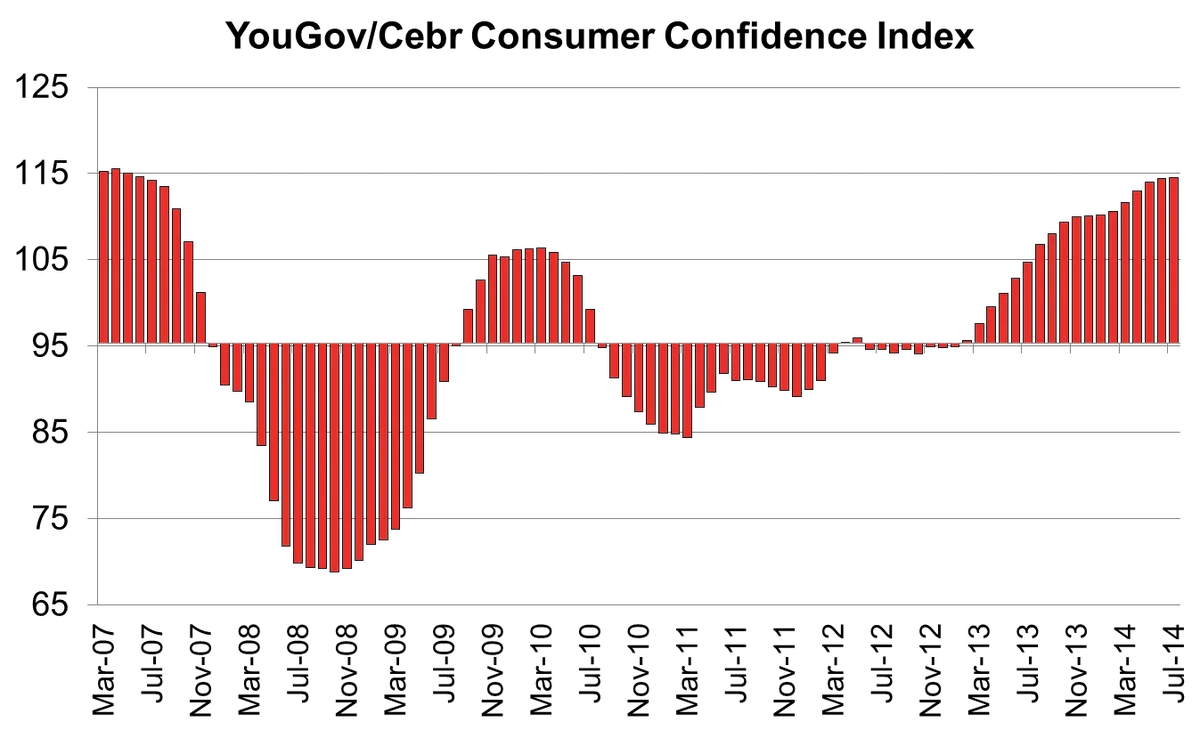YouGov CEO, Stephan Shakespeare, assesses the latest consumer confidence findings.
House prices never seem to be out of the headlines, particularly in the capital. After unprecedented increases and talk of a bubble, homeowners are becoming a bit more circumspect.
Over the past 18 months, we have seen an increase in consumer confidence that was largely driven by the property market – both recent experiences of it and also expectations for it over the coming year. However, our figures indicate that for the second month in a row, there has been a decline in the number of people who believe that house prices will rise. Although the net balance is still the fifth highest since YouGov started gathering data in the spring of 2009, this is the first time since the summer of 2012 there have been back-to-back monthly falls.

Our economic tracking data suggest that the cooling of the property market has stalled overall economic optimism. This month’s YouGov / Cebr Consumer Confidence Index is flat, suggesting that this phase of economic recovery may be reaching its peak.
But what does this mean in the build up to the general election next May? Well, with the foot coming off the accelerator in the housing market and things like business investment picking up, the economy could be readying itself for slower, more sustainable, and better balanced growth.

All of this is positive news but there is a difference between good things happening in the economy as a whole and people feeling it in their wallets. Our data show that although more people still think their household financial situation will get worse than get better in the coming 12 months, the gap has narrowed considerably over the past year. As the recovery starts to reach people’s wallets and improve their lots, many consumers would feel that the feel-good factor in the economy was based on a firmer footing – especially among those who are not home owners.
However, it is an uneven recovery with large regional discrepancies in consumer optimism. Our recent data also show the capital and surrounding areas outstripping the regions by some margin, meaning that so while it may feel like boom time in London and the South East, consumers in areas such as the North East are hardly feeling the effects of the recovery at all.
The upshot is that while things improving and consumers are starting to feel better, the economic narrative has yet to be decided.
This article originally appeared in City A.M.









